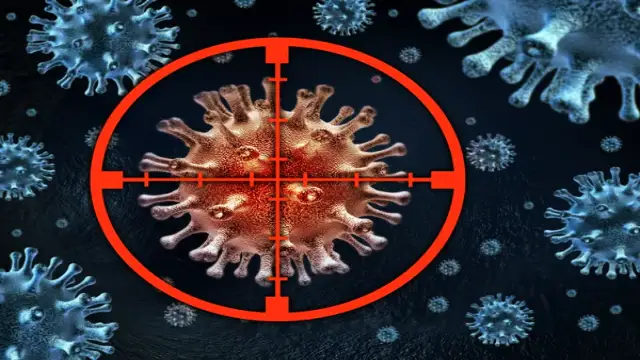Sex is often praised for its numerous physical and mental health benefits. From boosting your mood to keeping your relationship strong, regular sexual activity can be an integral part of a happy life. But what happens when you’re not having sex? Whether due to a breakup, personal choice, medical reasons, or just a dry spell, a lack of sexual activity can lead to some surprising changes in your body and mind.
Key Points
Dr. Mark Lawton from the British Association for Sexual Health and HIV (BASHH) shares insights into what happens to your body when you’re in a sex drought and how you can manage the effects.
1. Will Your Vagina Tighten Up? Not Really.
One common myth is that if a woman stops having sex, her vagina will become “tighter,” or worse, she might become “revirginized.” According to Dr. Lawton, these claims are unfounded. The truth is, your vagina doesn’t lose elasticity just because you’re taking a break from sex.
“Any tightness that women feel when they resume sexual activity is usually due to anxiety, which can cause the muscles to tense up,” says Dr. Lawton. This can lead to discomfort or even pain during sex, especially after a long break. However, with relaxation, foreplay, and perhaps some lubricant, it will feel like you never stopped having sex in the first place.
2. You Might Feel More Depressed and Anxious
Sex isn’t just about pleasure; it also plays a significant role in emotional well-being. During sex, your body releases endorphins and other “happy hormones” like oxytocin, which help reduce stress and improve mood. Without this regular boost, you may notice an increase in anxiety or feelings of depression.
Dr. Lawton adds, “From a psychological standpoint, people often feel pressure to have sex. When they’re not engaging in sexual activity, it can lead to feelings of guilt or inadequacy, which can trigger low moods.”
Research also supports this. A study by Stuart Brody at the University of Paisley found that couples who engaged in regular penile-vaginal intercourse had better stress responses than those who masturbated or had sex without penetration. This underscores the unique psychological and physiological benefits of sexual intercourse.
3. A Decreased Risk of STIs and UTIs
One of the silver linings of a sex drought is the reduced risk of sexually transmitted infections (STIs) and urinary tract infections (UTIs). According to the American Urological Association, sexual activity is one of the leading causes of UTIs in women. So, if you’re not having sex, you’re less likely to experience these painful infections.
However, if penetrative sex is off the table but you’re still engaging in oral or other forms of sexual activity, precautions are still necessary. Dr. Lawton warns that oral sex can also transmit STIs, which has been on the rise in recent years.
4. Your Libido Might Drop
One of the most common effects of a prolonged sex drought is a decrease in libido. Hormonal changes play a significant role here. When you’re not having sex regularly, your body produces lower levels of testosterone—the hormone responsible for sexual desire in both men and women.
“Lower testosterone levels in the body mean a decrease in sexual desire,” explains Dr. Lawton. Men, in particular, may notice a dip in their libido when they stop having sex for a long period of time.
5. Erectile Dysfunction May Become an Issue
For men, a sex drought may also increase the likelihood of erectile dysfunction (ED). Dr. Lawton points out that testosterone levels are closely linked to sexual performance. Men who have sex less than once a week are twice as likely to experience problems with erections compared to men who engage in sexual activity more frequently.
A study published in the American Journal of Medicine found that men who maintained regular sexual activity were less likely to develop ED, highlighting the importance of consistent sexual engagement for maintaining sexual health.
6) It’s All About Confidence
One of the biggest challenges of getting back into sex after a long break is overcoming the mental barriers. Dr. Lawton notes that many people, especially older adults who have lost a partner or are re-entering the dating scene, experience sexual dysfunction not because of physical issues, but due to psychological stress and loss of confidence.
“Psychological stress about sex can result in erectile problems for men and vaginal tightness or dryness for women,” says Dr. Lawton. “At my clinic, we often see older people who are trying to date again after a divorce or the loss of a partner. It’s important to understand that you shouldn’t write yourself off if you’re having these issues—see your doctor if you need help.”
Moving Forward
While a sex drought might seem like a period of unwanted consequences, it’s not all bad news. The key is understanding how the lack of sex affects your body and finding ways to manage those effects. Whether through regular physical exercise, seeking therapy for anxiety, or simply learning to relax, there are many ways to regain control of your sexual health.
If the sex drought is self-imposed, take this time to focus on your overall well-being. And remember, when you’re ready to get back in the game, don’t let anxiety or lack of confidence hold you back. With the right approach, you can enjoy a fulfilling sex life once again.























